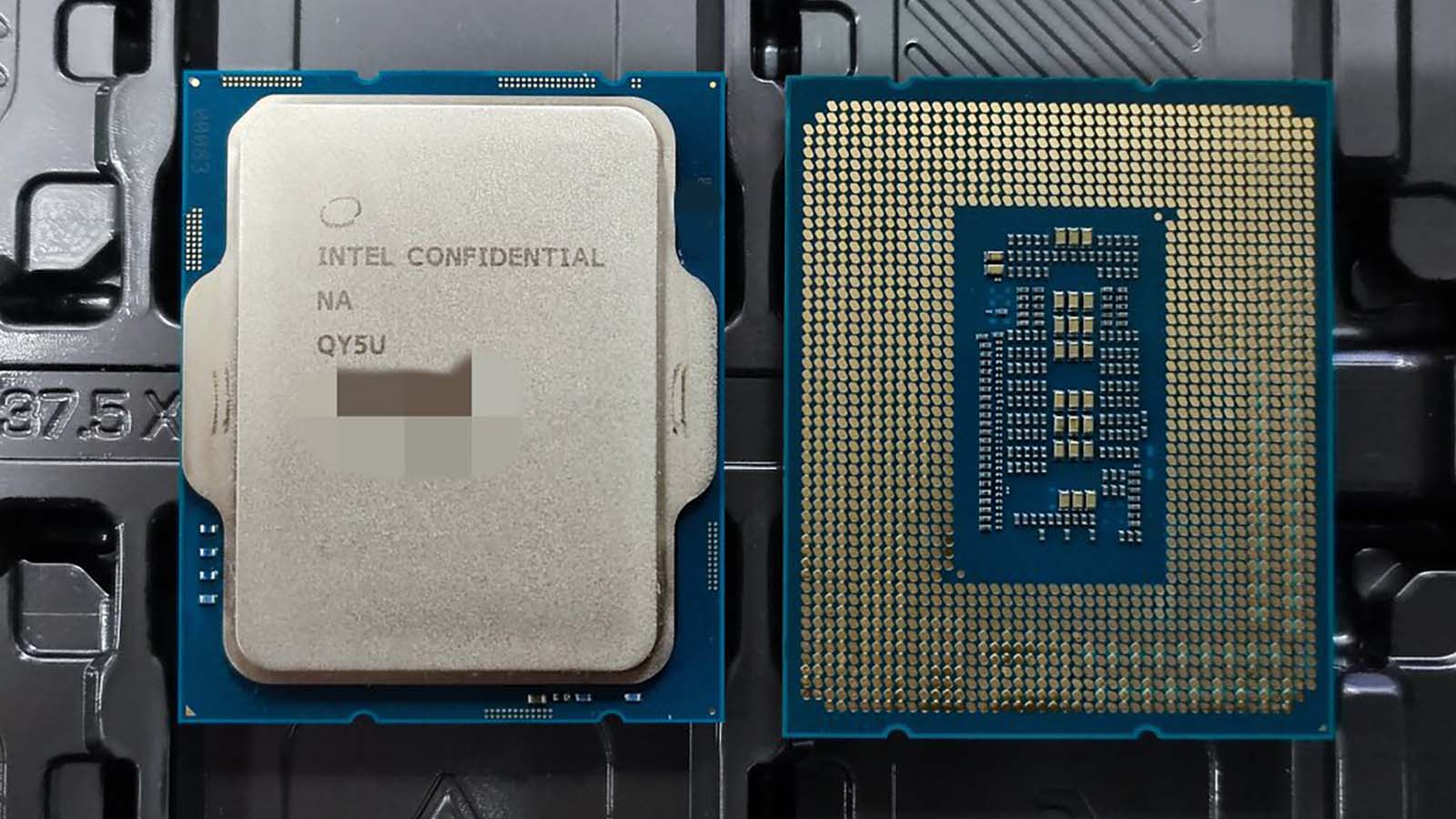Almost entire lineup of Intel Alder Lake mobile chips leak ahead of CES 2022
P-series and H-series chip details revealed in GeekBench database

Details on nearly the entire Intel Alder Lake mobile series processors have popped up online, giving our best look yet at Intel's upcoming chips expected to launch at CES 2022.
The chip details were found in the Geekbench database by BenchLeaks, and include information on SKUs from both the H-series and an apparently new P-series. Some of the benchmark info is clearly off, with max clock speeds way higher than they should be and score inconsistencies between chips that don't make any sense.
Benchmark tools have had trouble in the past measuring the big.LITTLE architecture of Intel's Alder Lake chips before though, so some of these anomalies are expected. The core and thread count as well as the amount of L3 Cache aren't performance metrics but are instead info provided by the processor itself, so there's no reason to doubt their validity as far as a leaked benchmark result goes.
That said, while the base clock speeds listed are somewhat in line with expectations, an Core i5-12450H is clearly not maxing out at 26.0GHz, so we'd really like to stress that the base clock speeds can be wrong as well and shouldn't be taken as definitive.
Likewise, the actual scores given to each chip by Geekbench 5 are wildly inconsistent, with the Core i7-12700H scoring nearly twice what the i9-12900HK does in multi-core performance, and with the Core i7-1260P scoring higher in single-core performance than the Core i7-12800H, despite having just over half the TDP of an H-series chip.
Now all of these scores can end up being valid, but we highly doubt it. What is more likely is that these scores show how benchmarking new technology can be a tricky thing and should serve as a good case study as to why leaked benchmarks always need to be taken with a grain of salt.
Still, we included the max clock speeds on the P-series in our breakdown since they look much more in line with expectations, but they shouldn't be taken as the final word as to the chips max frequency. The H-series chips were way off nearly across the board, so we only include the listed base clock speeds on those results.
Get daily insight, inspiration and deals in your inbox
Sign up for breaking news, reviews, opinion, top tech deals, and more.
Looking at the chips themselves, we'll start with the P-series chips, which seem to be designed for lightweight laptops like Ultrabooks, and may be replacing the U-series. Geekbench has results for the i5-1240P, the i7-1260P, and i7-1280P, with the topline results shown below.
| SKU | Cores / Threads | Speed (Base / Max) | L3 Cache | Single-Core Score | Multi-Core Score |
|---|---|---|---|---|---|
| i5-1240P | 12 / 16 | 2.09GHz / 4.389GHz | 12MB | 1,149 | 3,060 |
| i7-1260P | 12 / 16 | 2.49GHz / 4.588GHz | 18MB | 1,721 | 9,697 |
| i7-1280P | 14 / 20 | 2.00GHz / 4.688GHz | 24MB | 1,602 | 6,369 |
There are also a number of chips from the performance-focused H-series chips that you see in gaming laptops and mobile workstations, including the Core i5-12450H, i5-12500H, i5-12650H, i7-12700H, i7-12800H, and i9-12900HK.
| SKU | Cores / Threads | Base Speed | L3 Cache | Single-Core Score | Multi-Core Score |
|---|---|---|---|---|---|
| i5-12450H | 8 / 12 | 2.50GHz | 12MB | N/A | N/A |
| i5-12500H | 12 / 16 | 3.10GHz | 18MB | 1,602 | 8,367 |
| i7-12650H | 10 / 16 | 2.70GHz | 24MB | 1,738 | 10,016 |
| i7-12700H | 14 / 20 | 2.70GHz | 24MB | 1,758 | 12,164 |
| i7-12800H | 14 / 20 | 2.80GHz | 24MB | 1,654 | 9,618 |
| i9-12900HK | 14 / 20 | 2.89GHz | 24MB | 1,751 | 6,438 |
Analysis: what about Alder Lake-M?
These results don't show the whole picture on Intel's upcoming Alder Lake mobile CPUs, it should be noted. As VideoCardz helpfully points out, we haven't seen anything yet on Intel's M-series mobile processors.
These chips anchor the ultra-low power end of the market, so are likely to be edge cases for most consumers, but they are important ones nonetheless.
The M-series chips are going to be important for Chromebooks and laptops like the Microsoft Surface Laptop SE, which are going to be more focused on affordability than raw performance.
While the Alder Lake P-series and H-series processors are where the overwhelming majority of users are going to be served, for the low-power computing enthusiasts out there, we'll have to wait a bit longer to find out more on those chips.
- Check out our picks for the best laptops of 2021

John (He/Him) is the Components Editor here at TechRadar and he is also a programmer, gamer, activist, and Brooklyn College alum currently living in Brooklyn, NY.
Named by the CTA as a CES 2020 Media Trailblazer for his science and technology reporting, John specializes in all areas of computer science, including industry news, hardware reviews, PC gaming, as well as general science writing and the social impact of the tech industry.
You can find him online on Bluesky @johnloeffler.bsky.social